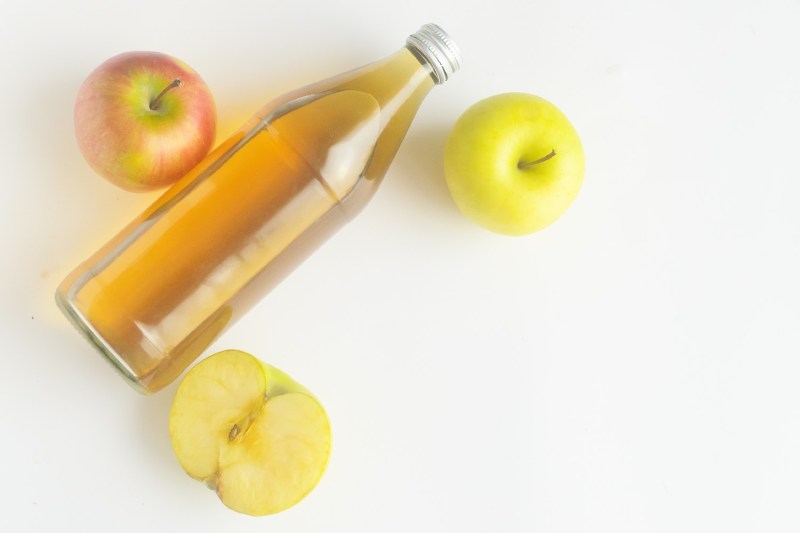
As we’ve learned the past decade or two, there’s so much more to the world of beverages than Americans were led to believe for many years. Beer is more than industrial light lagers, and the world of spirits is so much larger than just a shelf of vodka, gin, whiskey, and rum. And the best hard cider? Well, it’s definitely more than just a sweeter alternative to beer.
Cider, however, does tend to stick to lower, sub-7% alcohol by volume due to some antiquated liquor tax laws and general consumer well-being, but there are still some cider makers who find their way around that or simply in spite of it. We’ve curated only some of the best high-octane ciders to get your apple fix this fall.
Eden Specialty Ciders
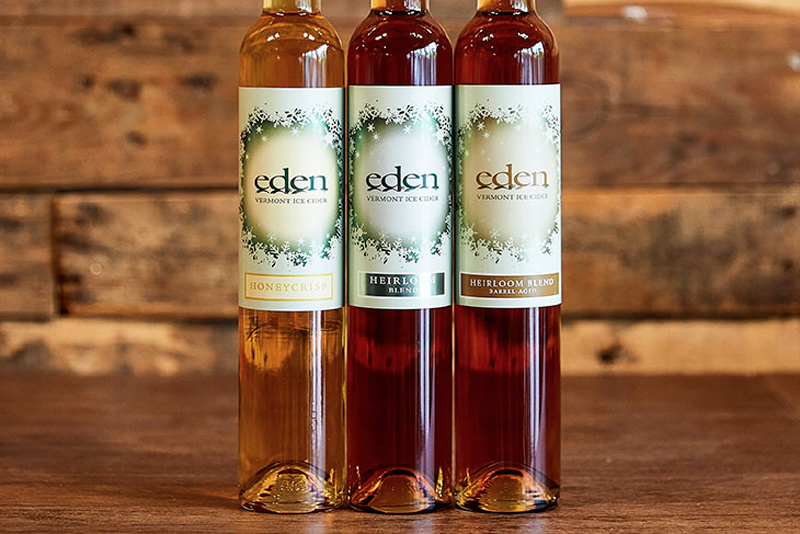
Ask around for high-ABV recommendations and cider makers will often point you to Eden. The cider maker generally has three main ice ciders: Heirloom Ice Cider (10%), Windfall Orchard Ice Cider (9%), and Honeycrisp Ice Cider (10%). They’ve all won awards at the Great Lakes International Cider Competition, the most prestigious of the sort, including the Heirloom Blend this year. Eden also has more specialty ice ciders, like its Cellar Series, Brandy Barrel Heirloom, and Northern Spy Barrel-aged.
Angry Orchard Ciderhouse Collection
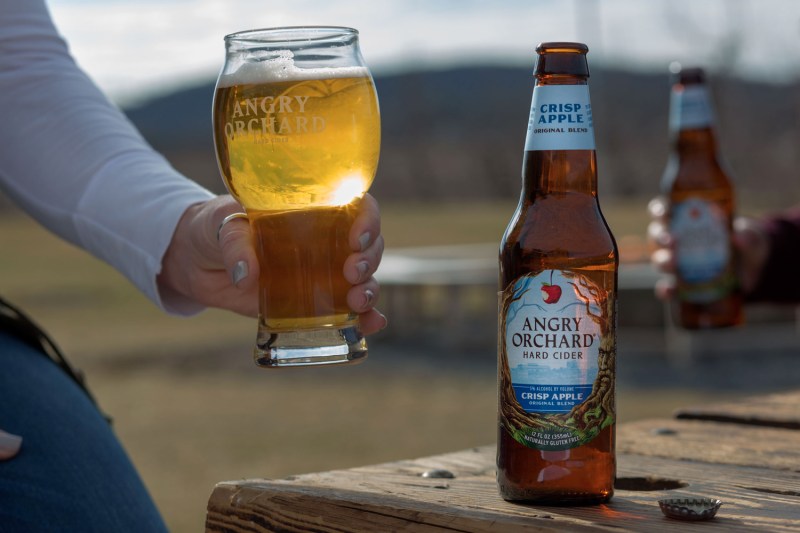
Ryan Burk, that guy on the TV who talks about Angry Orchard, sure can make some ciders. The Angry Orchard line of ciders goes much deeper than those in the liquor store cooler and dives into an eclectic range with the Ciderhouse Collection, many of which run high in alcohol. Strawman is a 10% farmhouse cider, while Walden Hollow is an 8% heirloom cider. Angry Orchard also ventures into a bubbly carbonated cider with The Muse and ice cider with Iceman.
Vander Mill Puff
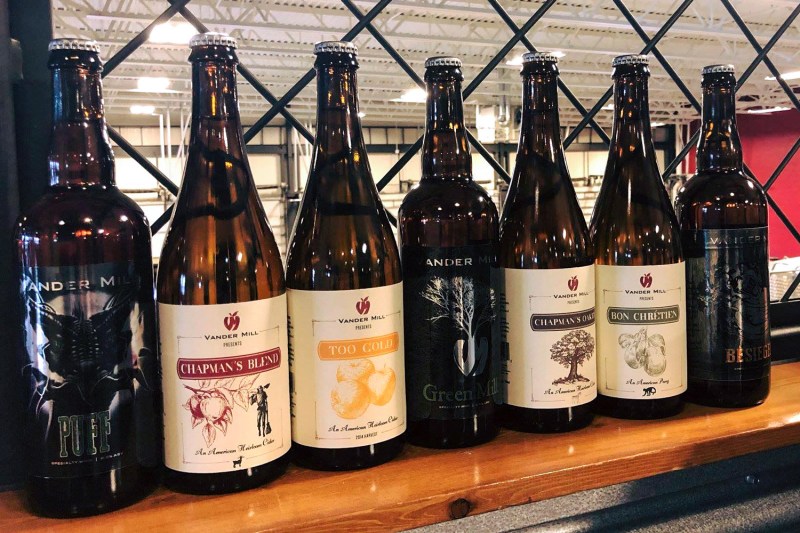
Vander Mill collaborates with New Holland Brewing Co. to make this cider and mead combination. The cider is fermented with wildflower honey and then aged on New Holland Dragon’s Milk barrels for eight months. The resulting product has plenty of depth from the leftover stout, the barrel, and the honey and cider, all while clocking in at 8.5% ABV. Vander Mill makes several other cysers as well, including Cyser Van Doom, Green Mill, and Besieged.
New England Cider Co. Barrel Aged Ciders
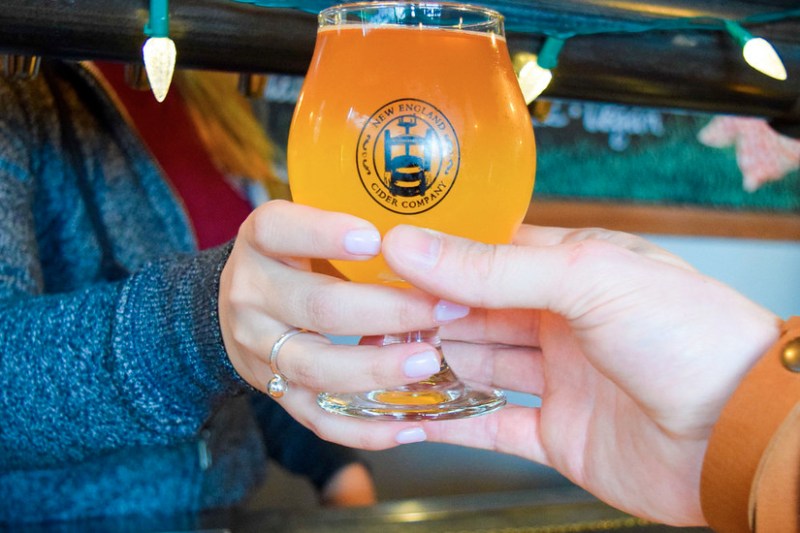
New England Cider company has a whole host of types of ciders, ranging from its Single Apple ciders, which can bump up to 10%, Fruit ciders, Hopped ciders, Herbal ciders, and Dry ciders. But where it shines in the high-ABV world is the Barrel Aged category. The cidery’s first barrel-aged cider was aged in Whistle Pig Distillery rye barrels for six months. Now there’s a decent line of releases that range from 9% to 12%, including Rum Barrel, Whiskey Barrel, Red Wine Barrel, Gin Barrel, Tequila Barrel, Fortune Apple Barrel, and Cherry Barrel.
Read more: How to Make Hard Apple Cider
2 Towns Ciderhouse Ciders
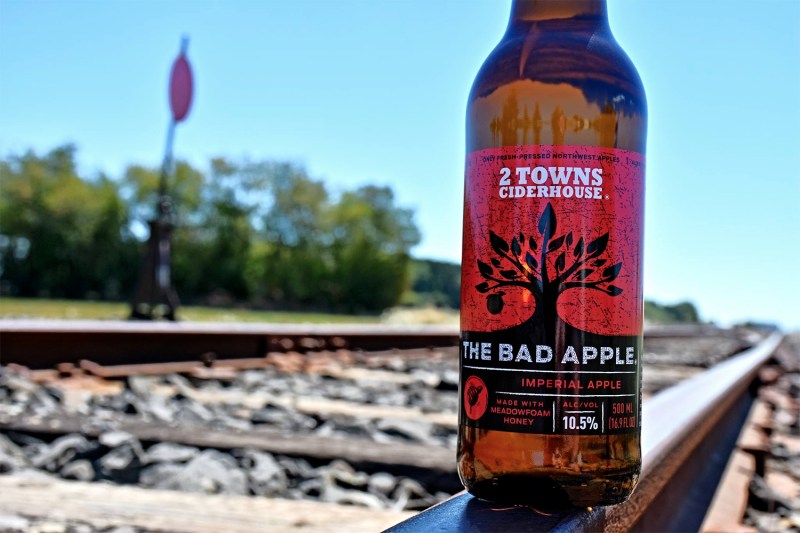
While most of its flagships are 6% or 5%, 2 Towns’ The Bad Apple is a year-round cider at 10.5%, made with honey and aged on Oregon White Oak. When the seasons get chillier in Oregon, 2 Towns Cider turns to Nice & Naughty Imperial Spiced Apple to warm up. The cider clocks in at 10.5% ABV and is loaded with cinnamon, nutmeg, and clove. The cider maker bumps it up another notch with Serious Scrump, an 11% Imperial English Cider made in an ice cider fashion.
Austin Eastciders Imperial Cider

Most of Austin Eastcider’s juice is around 5% alcohol by volume, but not if you break into the maker’s stash. Austin Eastcider’s Imperial Cider clocks in at 8.3% and is “bold and unfiltered like Texas.”
Made with unfiltered juice from Washington Gala, Red Delicious, Fuji, Granny Smith, and Honeycrisp apples, the Imperial Cider tastes plenty like apples with a big punch. It’s a bit hazy for those who like a hazy IPA and is pretty dry, making it ideal for a cross-over drinker looking for a way into cider.


